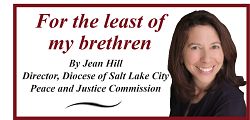Help Care for Orphans
Charles Dickens’ second novel, The Adventures of Oliver Twist, introduced the much-loved literary character into the world and offered a memorable description of the plight of a child in a workhouse orphanage.
Much has changed in the world of orphanages since Dickens’1837 novel, but modern orphanages are still far from ideal settings for children. In fact, 80 years of research shows that outcomes for children in orphanages are abysmal and include higher rates of abuse and sexual exploitation, contributing to significant delays in their cognitive, physical and emotional development. Children who survive their years in institutions are more likely to be unemployed, suffer from drug addiction, and have vastly higher suicide rates.
What makes such dismal outcomes even more concerning is the reality that 80 percent to 90 percent of children in orphanages aren’t actually orphans. The majority of these institutionalized children have at least one living parent. The children are placed in the facilities not because they lack parents, but because their parents lack the means to provide basic services such as education, or face discrimination because of a child’s disability. Parents may give up their children willingly in the hope the providers will better feed, educate and care for their child, or through coercive practices by individuals with little interest in the child’s well-being.
Despite the overwhelming evidence that funds spent on orphanages would be much more effectively spent supporting children within their own homes, orphanages that exploit children, either intentionally or through lack of knowledge and resources, continue to exist, and are growing in some areas of the world.
Fortunately, Catholics concerned about the dignity and sanctity of life for children can do something to help redirect resources to more effective interventions that provide for family unity. Catholic Relief Services, in partnership with Lumos and Maestral International, is working on a $100 million initiative, Changing the Way We Care, to transform care systems in seven countries: Guatemala, Haiti, India, Indonesia, Kenya, Lebanon and Moldova.
According to CRS, the initiative is designed to accomplish three core outcomes: government policies and investments that promote family care; children staying with or returned to their families through family-strengthening interventions that consider the wants and needs of the children, involve the local community and transition orphanages into family care centers; and redirection of contributions from corporate, philanthropic, faith-based and secular organizations and individuals to family care models that follow best practices.
Some children will still need care outside of their families, whether because of abuse or other issues. Changing the Way We Care encourages best practices in these settings, which includes serving children who can’t return home in a residential setting with no more than 8-10 children. The surrounding community and government must also be fully accepting and supportive of the facility. Small and inclusive settings, sadly, are not often the norm.
It is no surprise that children need care from familiar and loving adults who remain a constant presence in their lives. Moving multiple countries to models that emphasize such care will not be simple, but it will have a major impact on the lives of millions of children currently sitting in large orphanages with few opportunities to bond with adult caregivers, and few protections from predators who seek out large and impersonal places to work or volunteer.
Please help CRS with its Changing the Way We Care initiative by donating today at https://www.changingthewaywecare.org/. The site also includes updated information on the program and its successes.
Jean Hill is director of the Diocese of Salt Lake City Office of Life, Justice and Peace. She can be reached at jean.hill@dioslc.org.
© Copyright 2024 The Diocese of Salt Lake City. All rights reserved.


Stay Connected With Us